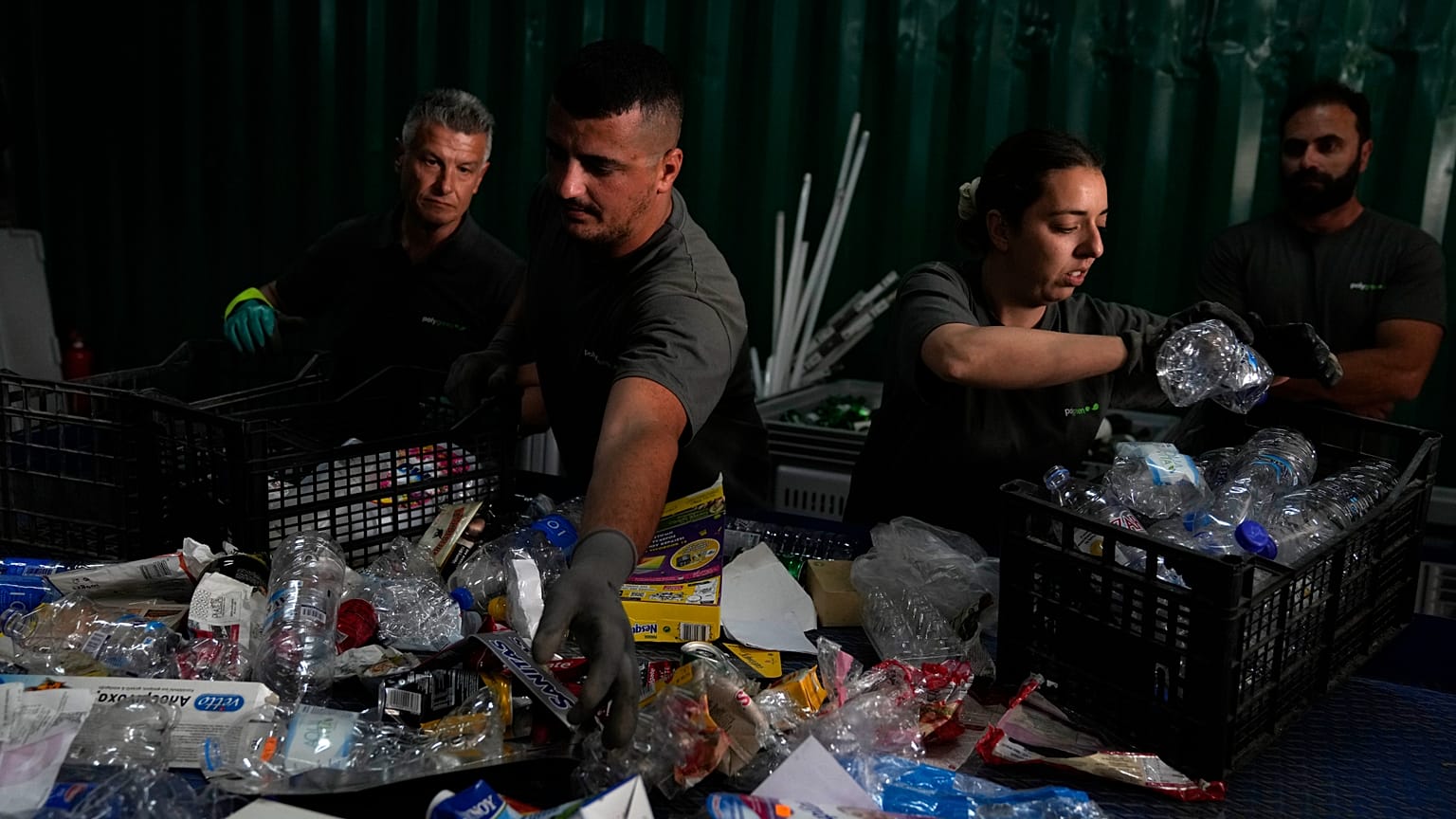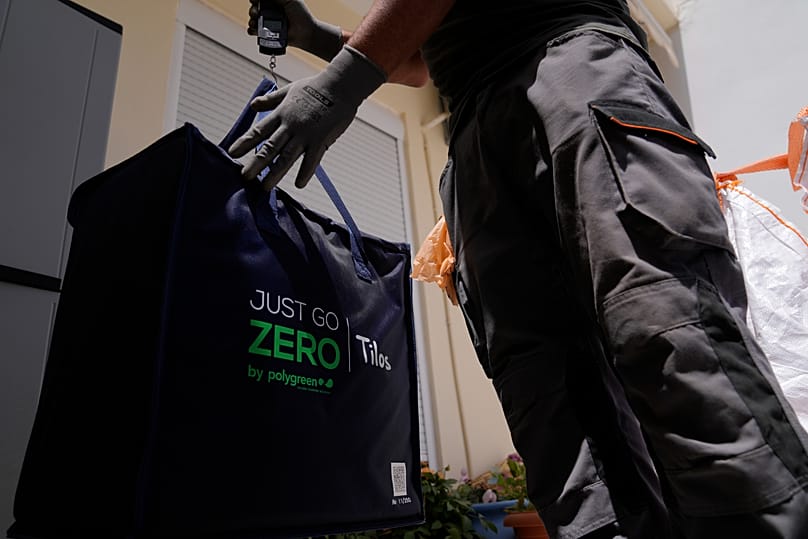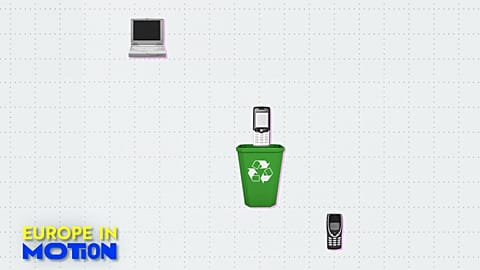The waste problem is particularly critical in Athens and the wider area of the Greek capital.
Billions of euros have been spent on recycling infrastructure in Greece. Dozens of information and awareness-raising campaigns have been carried out.
The streets of Greek cities are full of bins collecting all kinds of materials: plastic and aluminium packaging, paper, food scraps, footwear and clothing.In many different retail stores, there are special bins that collect batteries and electrical appliances for recycling.
And yet, Greece continues to bury around 79 per cent of its waste, according to figures presented by the Association of Recycling and Energy Recovery Industries and Enterprises (SEPAN).
The Association's president, Lena Belsi, stresses that a majority of Greece's waste is still buried while recycling rates barely reach 17 per cent, a level that is one of the lowest in Europe.
She explains that there are two main reasons for this phenomenon.
The first is the absence of disincentives (mainly specific taxes or fines) that would force households and businesses to recycle more.
"Burial is the easiest and cheapest solution in Greece", Belsi tells Euronews.
"Burial remains a cheap solution because the special burial fee remains low in the country, especially compared to other EU countries. In other EU countries, the landfill fee was the main disincentive that worked and increased recycling rates. But in Greece it remains at €35 per tonne. There are countries, such as Italy, where this fee exceeds €100 per tonne."
The second reason for the reduced recycling rates has to do with the mentality of Greek citizens, according to Belsi.
"Citizens take their rubbish outside their house and then think it disappears. They forget about it, they have the feeling that the garbage goes somewhere where they don't see it and it doesn't bother them, so they don't pay much attention to it. But that is not the case. Landfilling garbage does great harm to the environment. "
Greek capital plagued by waste
While Greece lags behind in recycling overall, the problem is particularly critical in Athens and the wider area of the Greek capital.
"Attica is lagging far behind," Belsi warns, stressing that there is an urgent need to move forward with modern infrastructure projects for waste recovery and the development of the circular economy in the Greek capital.
Waste management in Attica remains one of the most persistent and intractable problems in the country.
Despite an ongoing 'green transition' and the adoption of European targets for a circular economy, the system is still largely based on landfilling.
The landfill site at Fili, which has been operating for over two decades, receives around 90 per cent of Attica's waste, although it is at its limits and is now seen as an environmental and social problem.
The lack of alternative infrastructure, combined with delays in the implementation of new treatment plants, creates a deadlock that is threatening to create a management crisis in the near future.
Recycling in Attica is at disappointing levels: only around 15 per cent, well below the European average.
"If the problem of Attica is not solved, no matter how much progress is made in the rest of the country, it will not be enough to improve the overall picture of Greece", she said.
Successful exceptions
The island of Tilos is one of the most successful examples of a green transition in Greece, having reduced its waste to almost zero through its"Just Go Zero" programme.
Through source sorting, reuse and composting, the island recycles over 85 per cent of its waste.
There are a few other net zero examples, not as successful as the one on Tilos, which are mainly in the pilot stage, on the islands of Antiparos, Alonissos, Paros and Naxos.
But individual examples, such as that of Tilos, are not sufficient to reverse the overall picture.
In order to increase the national recycling rates, the Association of Recycling and Energy Recovery Industries and Enterprises is calling on the Greek state to make the procedures for the licensing of recycling workshops simpler and faster. It is also asking for stricter controls on the implementation of the recycling obligations of businesses and to impose stricter sanctions on those who do not fulfil their obligations.
The EU has set a target of recycling at least 70 per cent of all waste by 2030.



















